Mazhar e Sharif – The Holy City
The skyline is dominated by the blue domes of fantasy-like architecture of the mausoleum, along with hundreds of white pigeons flying around to seek fortune. Mazhar e Sharif, once a small village overshadowed by the nearby Balkh, now is the biggest city in northern Afghanistan.
Mazhar-e-Sharif, literally means Tomb of the Exalted, had passed different path of history Kabul had experienced. It was Russian stronghold area and it was under the occupation of communist general Rashed Dostum, an uneducated warlord who once the big ruler of Northern Afghanistan. Dostum had published his own money, what was known as Junbeshi money (Peace money), and he had his own airlines. Taliban failed to conquer Mazhar at its first attack, but succeeded in 1992 when Mazhar turned to be a city of blood. The Hazara ethnic were slaughtered.
Dostum is Uzbek. But not all Mazhar Uzbek like him. “He is a terrorist. I prefer Taliban as they are more Islamic,” said Kamran, a 20 year old man from the city center of Mazhar. The bloody history of Mazhar had passed, and the prosperious city now walked in peace.
The holy shrine of Hazrat Ali, the fourth caliph of Islam, is always full of pilgrims. This is holy shrine for both Sunni and Shiite sects, in the Sunni dominated Afghanistan. The universal belief that Ali was buried in Najaf, Iraq, but in the 12th century a local religious leader was told in his dream that Ali’s tomb was somewhere near Balkh. Therefore, a beautiful shrine was built here. The shrine is as holy as there were only white pigeons making their house here. It is said that that even black pigeons would turn to be white upon arrival to the shrine.
The women pilgrims come inside burqas (blue and white mostly) or in Iranian style of black chadors. Someone told me that different veils show different sects of Islam. I haven’t confirmed yet whether all women in black chadors were all Shiite. The scene in Mazhar was also combination between burqas, chador, purdah, and hejab. The young boys were more proud to wear modern T-shirts and jeans rather than the traditional Afghan shalwar kameez. The cosmopolitan feeling of Mazhar was emphasized by organized road, apartment blocks, shopping quarters around the center. It seemed much more organized than the capital Kabul.
Mazhar was also a magnet for people from surrounding areas. Shahidullah, a freedom fighter during the war, lost one of his legs. He was fighting for the communist government against the mujaheddin in a town near Mazhar. Now, war was over. He found with his disability, bread was harder to get. With one of his legs, he seeks donation from the pilgrims of the holy shrine. One of his compatriots traveled on his wheelchair along the way from Maimana, the capital of Faryab province, some 300 km away. He boasted that he even had reached Kabul only on his wheelchair. The memory of war was still strong in Mazhar, especially around the holy shrine. Poor widows in burqas with babies, men without legs cleaning the floor, one legged men racing with wooden sticks for getting alms, one-armed men sitting next to the gate, or orphan boys and girls wiaing for donation in pathetic sights, were the common scene.
I wished to know more about Mazhar’s past and how it affected the life of the city today. But the young journalist that Pajhwok Afghan News introduced to me, Tahir Qadir, was a bit less than helpful. Instead of saying yes or no, he promised to come at the evening (no exact hour) and at last I had to wait for two days without him even once answering my calls. My colleague in Kabul said people of Mazhar were notorious for their untrustworthy, but we should not generalize from one case. At least I love Mazhar for its mantu (Chinese dumpling served with yoghurt and oil) and the wonderful Turkish kebab burgers.

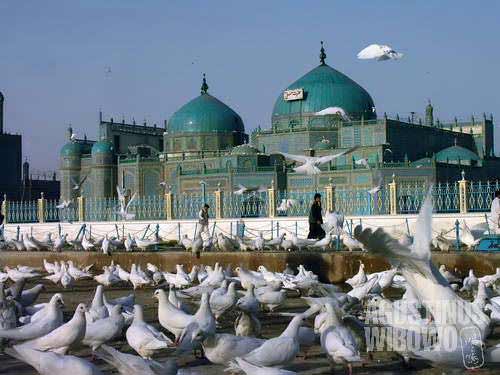
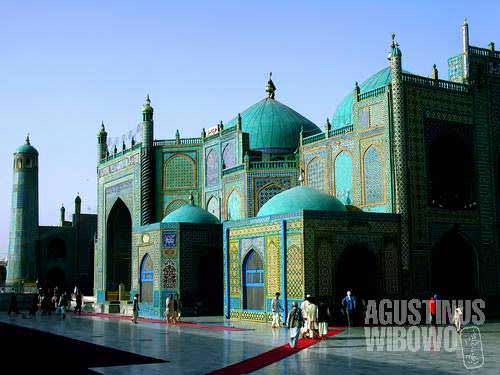
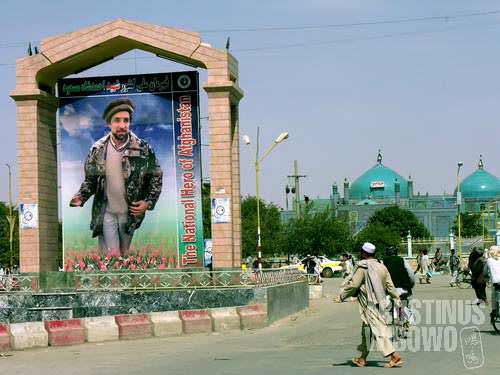
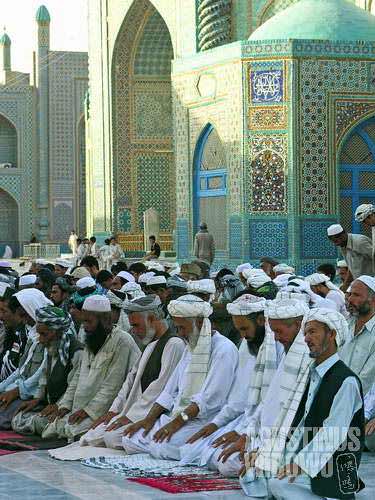
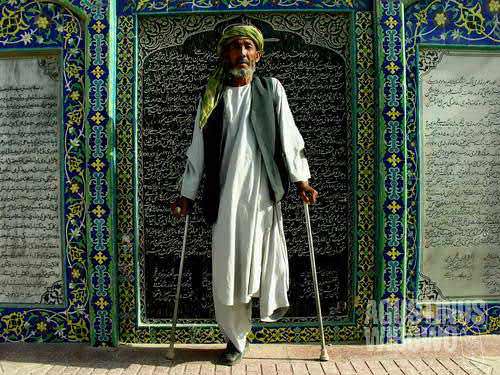
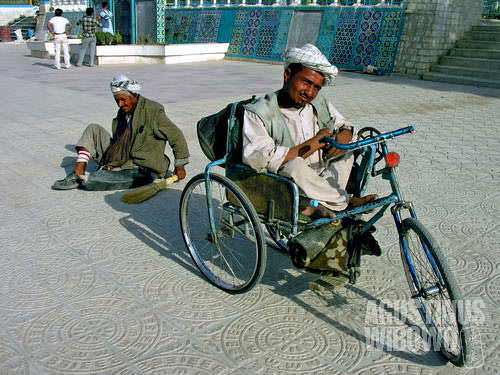
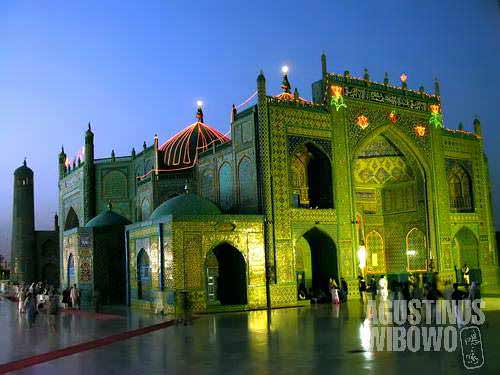





perempuan2 dgn burqa itu bnr2 luar biasa kaq…menutupi aurat dengan sempurna..:)
ema cuma pake jilbab biasa aja kdng kepanasan…he